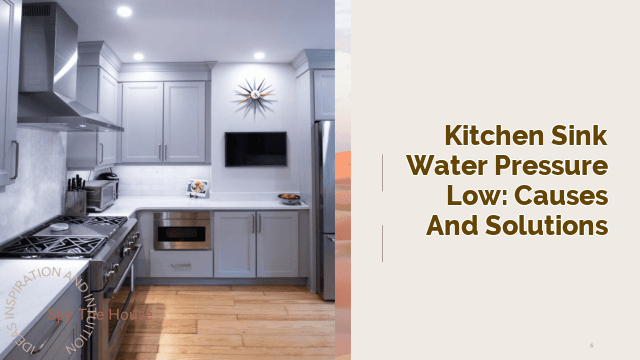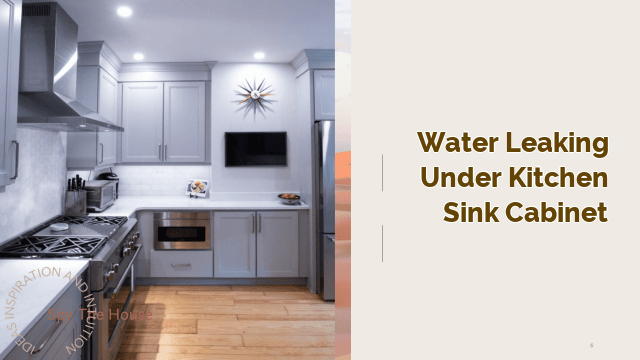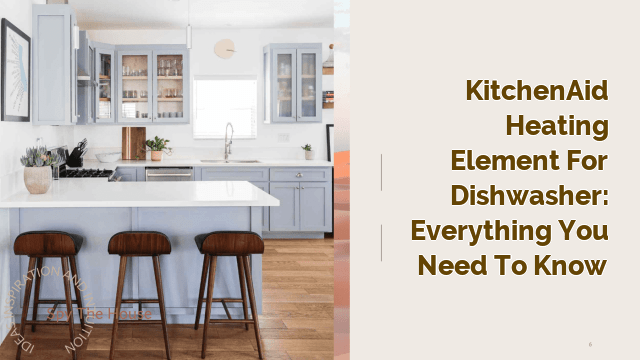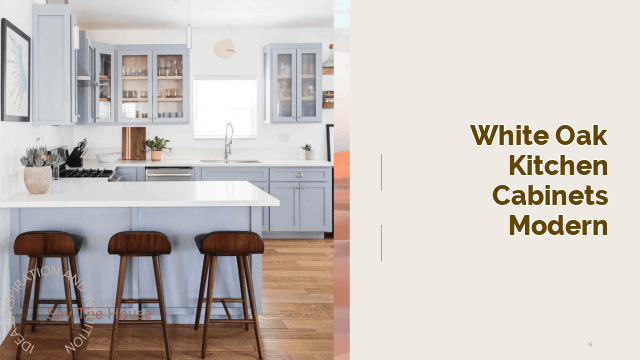Kitchen Sink Water Pressure Low: Causes and Solutions
There’s nothing more frustrating than trying to wash dishes or fill up a pot with water and finding that the water pressure in your kitchen sink is low. Low water pressure can make even the simplest tasks take longer and be more difficult. If you’re experiencing low water pressure in your kitchen sink, there are several potential causes and solutions to explore.
What is Kitchen Sink Water Pressure Low?
Kitchen sink water pressure low refers to a situation where the flow of water from the tap in your kitchen sink is weak or insufficient. This can make it difficult to perform tasks such as washing dishes, rinsing fruits and vegetables, or filling up pots and pans with water. Low water pressure may be a temporary or permanent problem, depending on the cause of the issue.
Causes of Kitchen Sink Water Pressure Low
There are several potential causes of low water pressure in your kitchen sink:
Clogged Aerators
The aerator is a small screen located at the end of the faucet spout. It helps to regulate the flow of water and prevent splashing. Over time, mineral deposits and debris can build up in the aerator, clogging it and reducing water flow. To fix this issue, you can remove the aerator and clean it or replace it entirely.
Leaking Pipes or Faucets
If there is a leak in your plumbing system, it can cause a drop in water pressure. Check for leaks in the pipes under your sink or in the faucet itself. If you find a leak, you may need to call a plumber to repair it.
Water Supply Issues
If your entire house is experiencing low water pressure, the issue may be with the water supply from your municipality. Contact your local water company to report the issue and find out if they are aware of any problems in your area.
Old or Worn-Out Pipes
If your home has old or worn-out pipes, they may be contributing to low water pressure in your kitchen sink. Over time, pipes can become clogged with mineral deposits, which restricts water flow. If you suspect that your pipes are the issue, you may need to have them replaced.
Water Heater Issues
If your home has a hot water heater, it can also contribute to low water pressure. If the water heater is not functioning correctly, it may not be able to provide adequate hot water pressure to your kitchen sink. You may need to have the water heater repaired or replaced.
Solutions for Kitchen Sink Water Pressure Low
Once you have identified the cause of your low water pressure, you can explore potential solutions:
Clean or Replace the Aerator
If your aerator is clogged with debris or mineral deposits, you can clean it by soaking it in vinegar or a specialized cleaner. If it is beyond repair, you can replace it entirely. A new aerator is inexpensive and easy to install.
Fix Leaks
If you have identified a leak in your plumbing system, you should have it repaired as soon as possible. A plumber can diagnose the issue and fix it quickly and efficiently.
Contact Your Water Company
If the issue is with the water supply from your municipality, you should contact your local water company to report the issue. They may be able to provide you with an estimate of how long it will take to fix the problem.
Replace Old or Worn-Out Pipes
If your pipes are the issue, you may need to have them replaced. This can be an expensive and time-consuming process, but it will improve water flow throughout your home and prevent future issues with low water pressure.
Repair or Replace Your Water Heater
If your water heater is the problem, you may need to have it repaired or replaced. A plumber can diagnose the issue and recommend the best course of action.
People Also Ask: Answers to Common Questions
What is the normal water pressure for a kitchen sink?
The normal water pressure for a kitchen sink is between 40 and 60 pounds per square inch (psi).
Why is my kitchen sink water pressure suddenly low?
Low water pressure in your kitchen sink can be caused by several issues, including clogged aerators, leaking pipes or faucets, water supply issues, old or worn-out pipes, or water heater issues.
How can I increase the water pressure in my kitchen sink?
To increase the water pressure in your kitchen sink, you can clean or replace the aerator, fix any leaks in your plumbing system, contact your water company if the issue is with the water supply, replace old or worn-out pipes, or repair or replace your water heater.
Does low water pressure affect only the kitchen sink?
No, low water pressure can affect all of the fixtures in your home, including your shower, bathtub, and other sinks.
Conclusion
If you’re experiencing low water pressure in your kitchen sink, it can be frustrating and inconvenient. However, by identifying the cause of the issue and exploring potential solutions, you can improve water flow and make daily tasks easier and more efficient. Whether you need to clean your aerator or replace old pipes, there are steps you can take to address the problem and enjoy better water pressure in your home.






